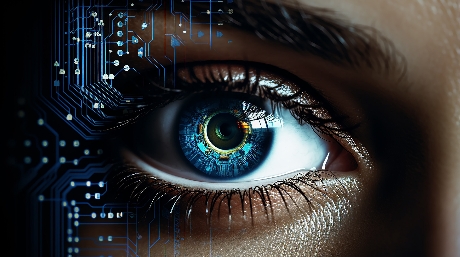
The social implications of AI solutions are vast and complex, impacting various dimensions of human life, society, and the economy.
AI technologies are transforming how we work, communicate, and interact, posing both opportunities and challenges. Here’s an overview of the key social implications associated with AI solutions:









### 1. **Job Displacement and Workforce Changes**
– **Automation of Jobs**: AI technologies can automate repetitive tasks, potentially leading to job displacement in sectors such as manufacturing, customer service, and transportation.
– **Job Transformation**: While some jobs may be lost, others will be transformed. AI can augment human capabilities, shifting the focus towards more creative, strategic, or interpersonal skills.
– **Reskilling and Upskilling**: The need for new skills will increase, necessitating reskilling and upskilling programs to prepare the workforce for changes driven by AI.
### 2. **Inequality and Access**
– **Digital Divide**: Access to AI technologies could exacerbate existing inequalities, as individuals and communities with less access to technology may be left behind.
– **Economic Disparities**: Organizations and regions that adopt AI early may gain significant advantages, potentially increasing the economic divide between them and those who lag behind.
### 3. **Bias and Discrimination**
– **Algorithmic Bias**: AI systems can inadvertently perpetuate or amplify societal biases if trained on biased data, leading to unfair treatment in areas such as hiring, lending, and law enforcement.
– **Accountability Issues**: Determining accountability for biased AI outcomes can be challenging, raising ethical and legal concerns about the impact of automated decisions on marginalized groups.
### 4. **Privacy and Surveillance**
– **Data Privacy Concerns**: The use of AI often involves large datasets that can include sensitive personal information, raising concerns about privacy violations and data security.
– **Surveillance Risks**: AI technologies, including facial recognition and tracking systems, can be used for mass surveillance, potentially infringing on civil liberties and posing threats to individual privacy.
### 5. **Social Interactions and Relationships**
– **Changing Nature of Work**: AI can change the dynamics of teamwork and collaboration, influencing how people interact in the workplace and potentially diminishing face-to-face communication.
– **Impact on Relationships**: AI-driven technologies, such as social media algorithms and recommendation systems, can affect personal relationships, shaping social connections and altering the way people communicate.
### 6. **Psychological and Ethical Considerations**
– **Human Trust in AI**: As AI systems take on more decision-making roles, trust in these systems becomes crucial. A lack of transparency can erode trust and lead to skepticism about AI.
– **Ethical Dilemmas**: The deployment of AI raises ethical questions about the treatment of individuals, accountability for decisions made by AI, and the moral implications of using AI in sensitive areas (e.g., healthcare decisions, autonomous vehicles).
### 7. **Healthcare and Well-Being**
– **Access to Healthcare**: AI can improve healthcare delivery by enhancing diagnostics, personalizing treatment, and streamlining administrative processes. However, disparities in technology access may affect how benefits are distributed.
– **Mental Health Impacts**: The pervasive use of AI in social media and other sectors can contribute to mental health issues, such as anxiety and depression, especially among younger populations.
### 8. **Political and Governance Effects**
– **Misinformation and Manipulation**: AI can be used to create and disseminate misinformation (e.g., deepfakes), influencing public opinion and undermining democratic processes.
– **Policy and Regulation**: The rapid evolution of AI technologies challenges policymakers to create regulations that protect citizens while fostering innovation and maintaining ethical standards.
### 9. **Cultural and Societal Impact**
– **Cultural Shifts**: AI has the potential to alter cultural norms and values, especially regarding work ethics, personal relationships, and social behaviors.
– **Identity and Agency**: Increasing reliance on AI systems can affect personal agency and individual identity, as people may defer decisions to machines.
### 10. **Global Impact**
– **International Competition**: Countries that lead in AI development may gain geopolitical advantages, impacting global power dynamics and economic competitiveness.
– **Global Collaboration and Challenges**: AI solutions can foster global collaboration on pressing issues like climate change and healthcare, but they can also raise challenges around ethical standards and governance.
### Conclusion
The social implications of AI solutions are multi-faceted, requiring careful consideration by stakeholders including governments, businesses, and society at large. Addressing these implications involves approaching AI development and deployment through an ethical and socially responsible lens, ensuring that the benefits of AI are distributed equitably and that potential harms are mitigated. Continuous dialogue, effective regulation, and stakeholder engagement are essential to navigate the complex social landscape of AI technologies.


Leave a Reply